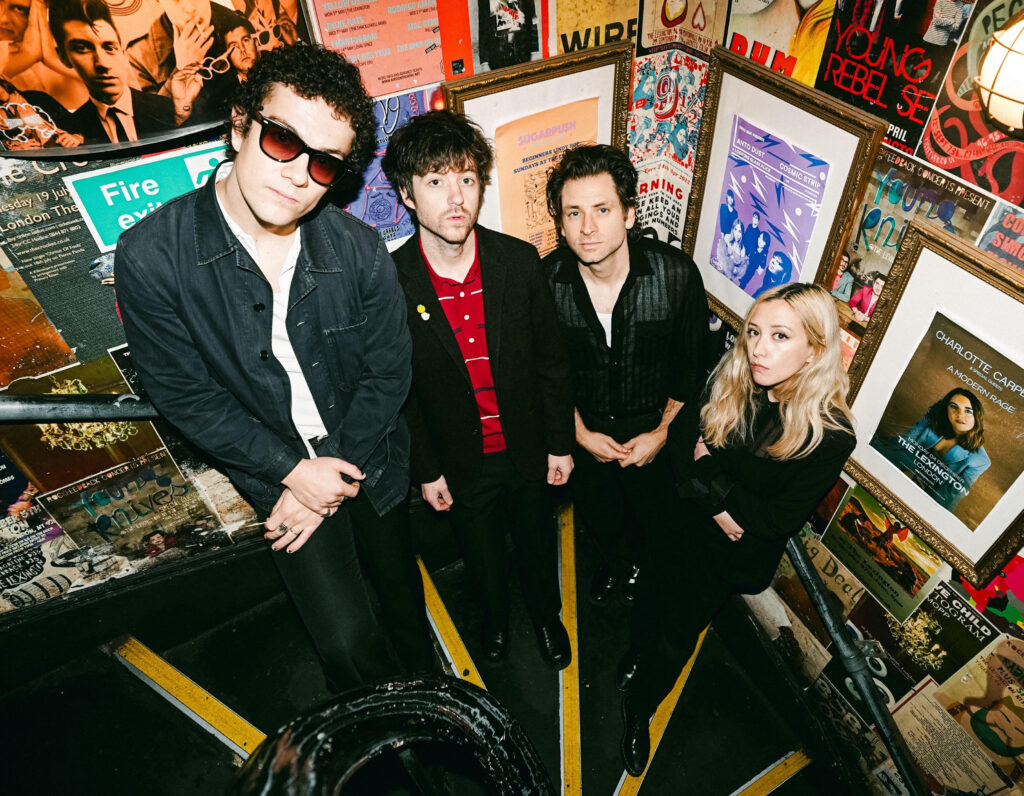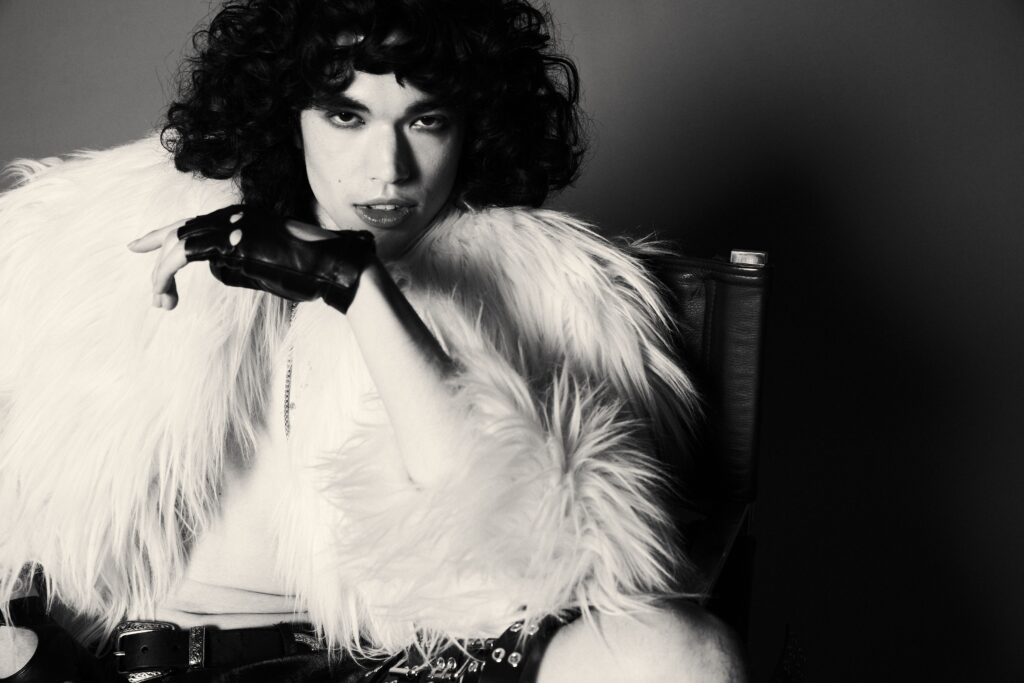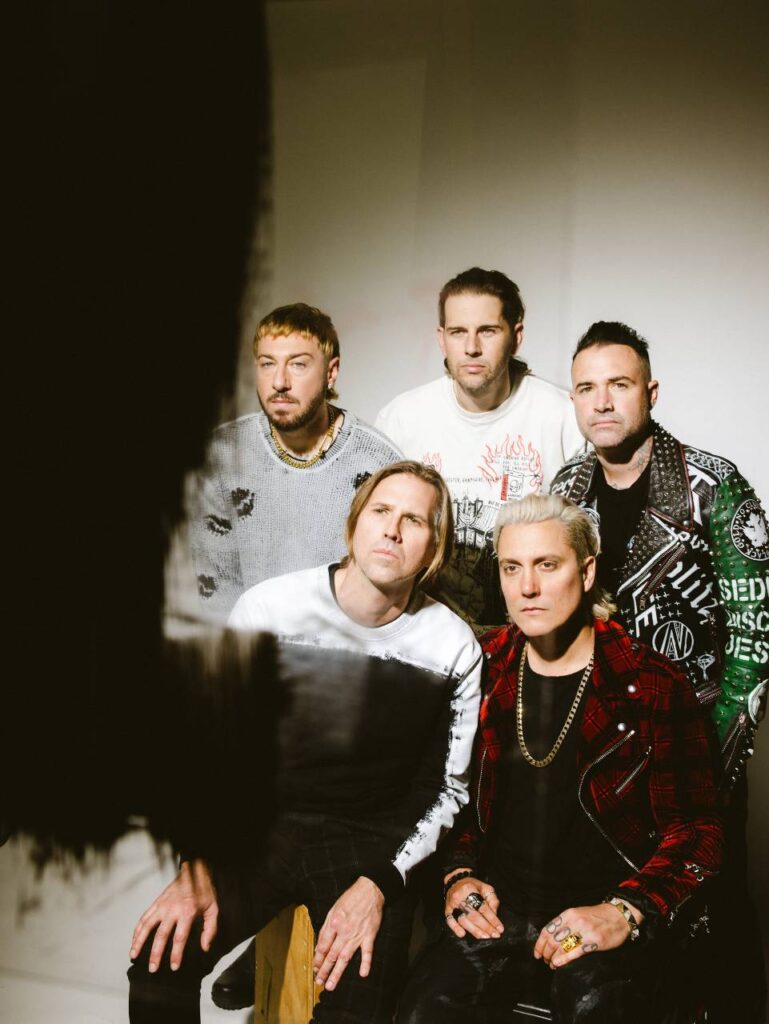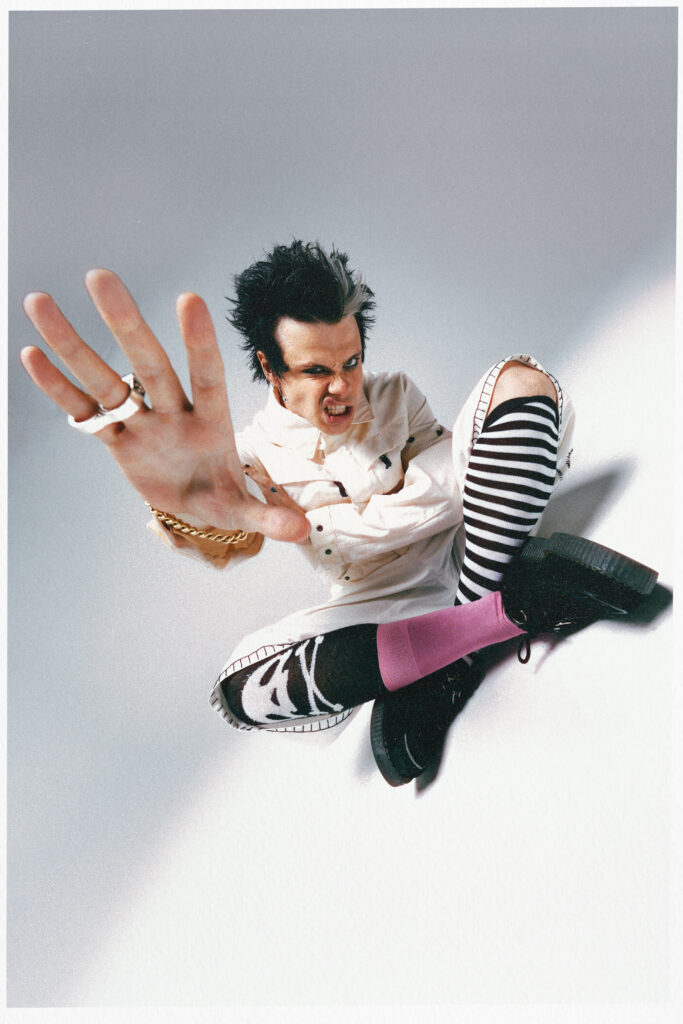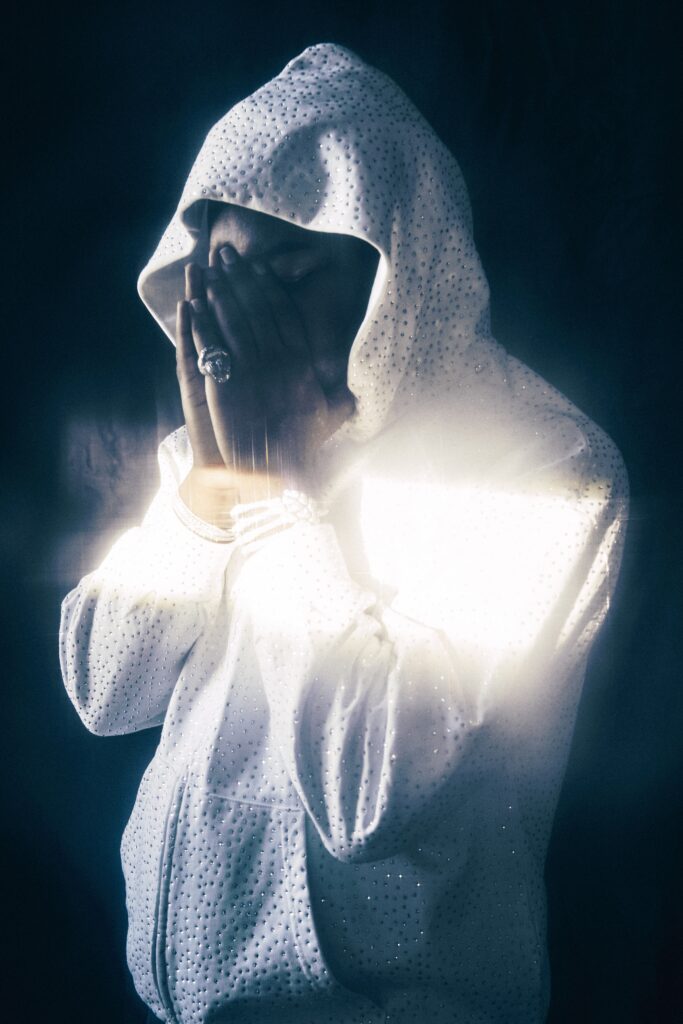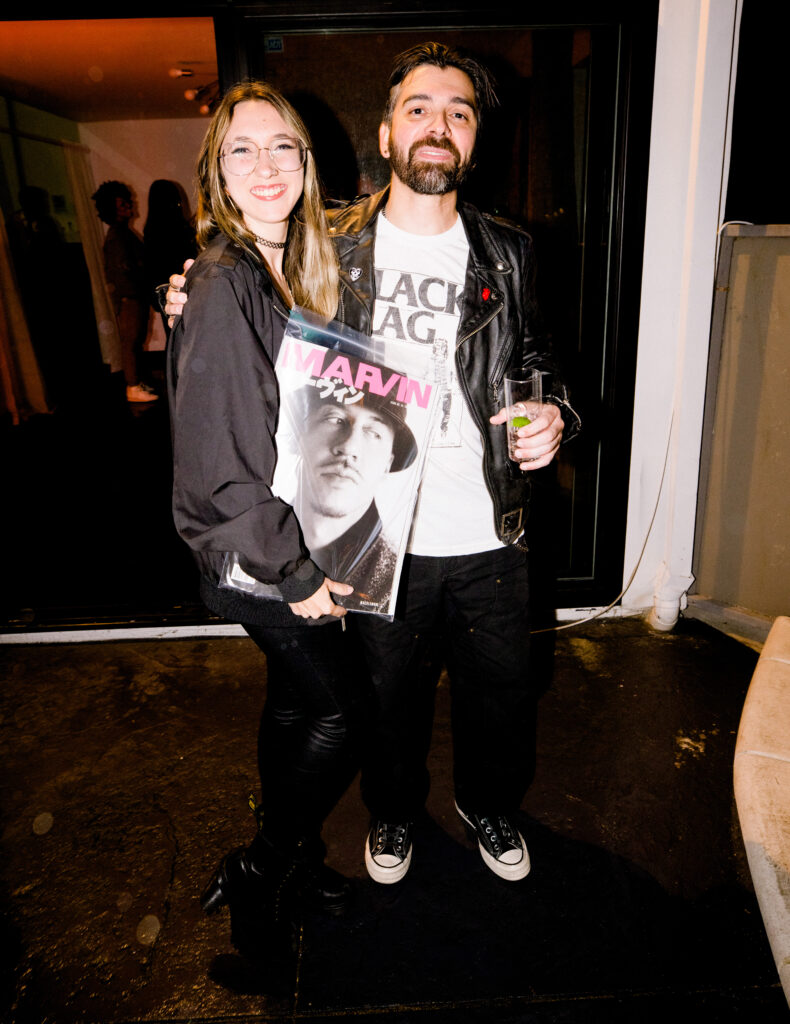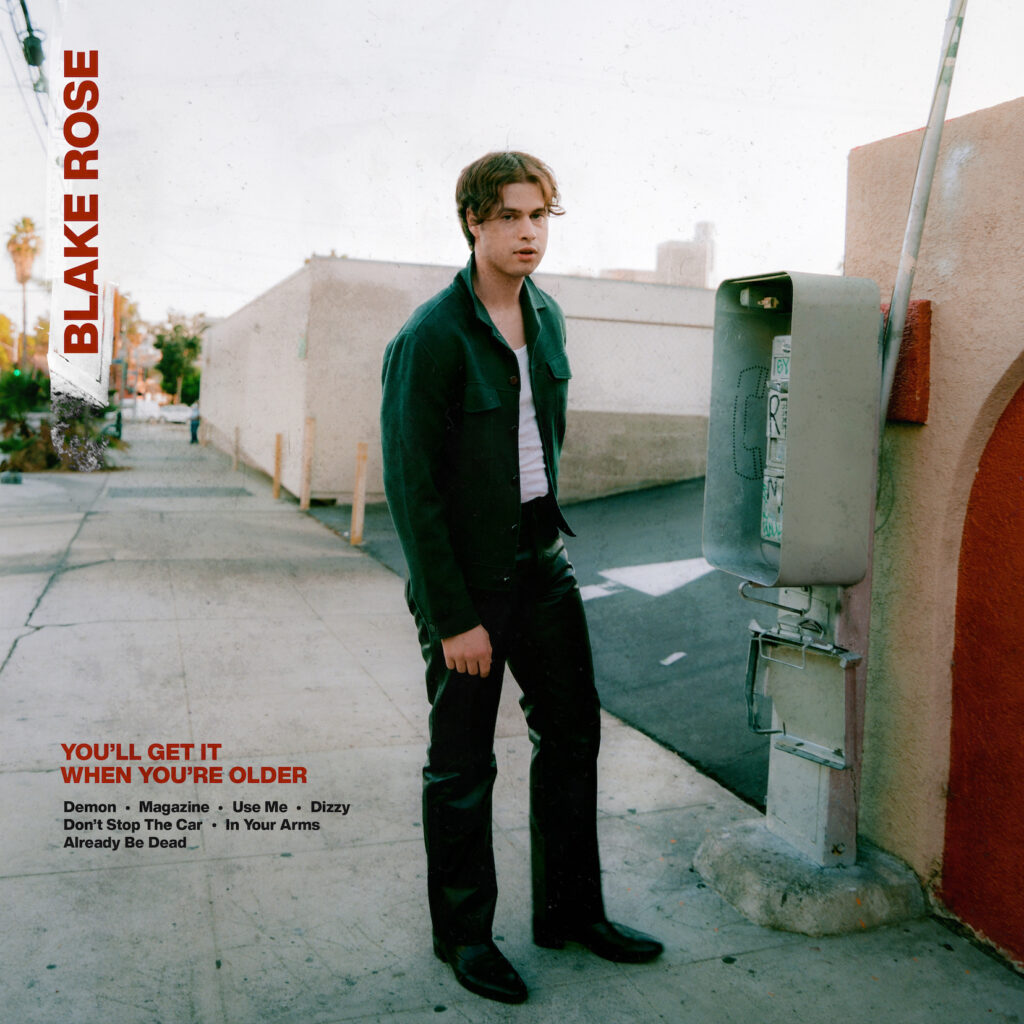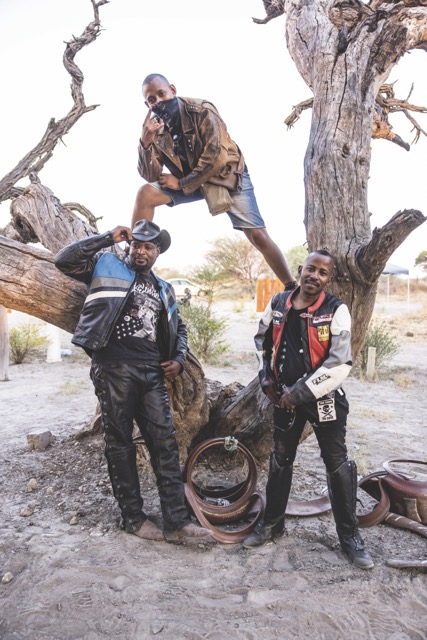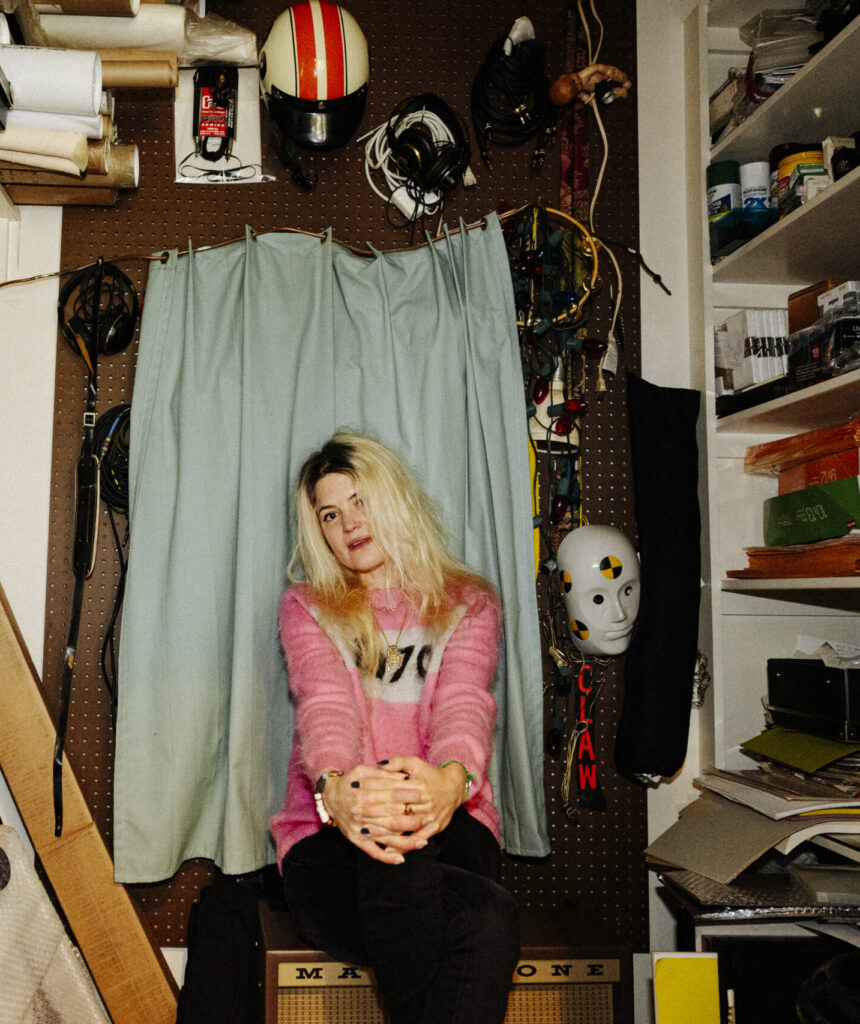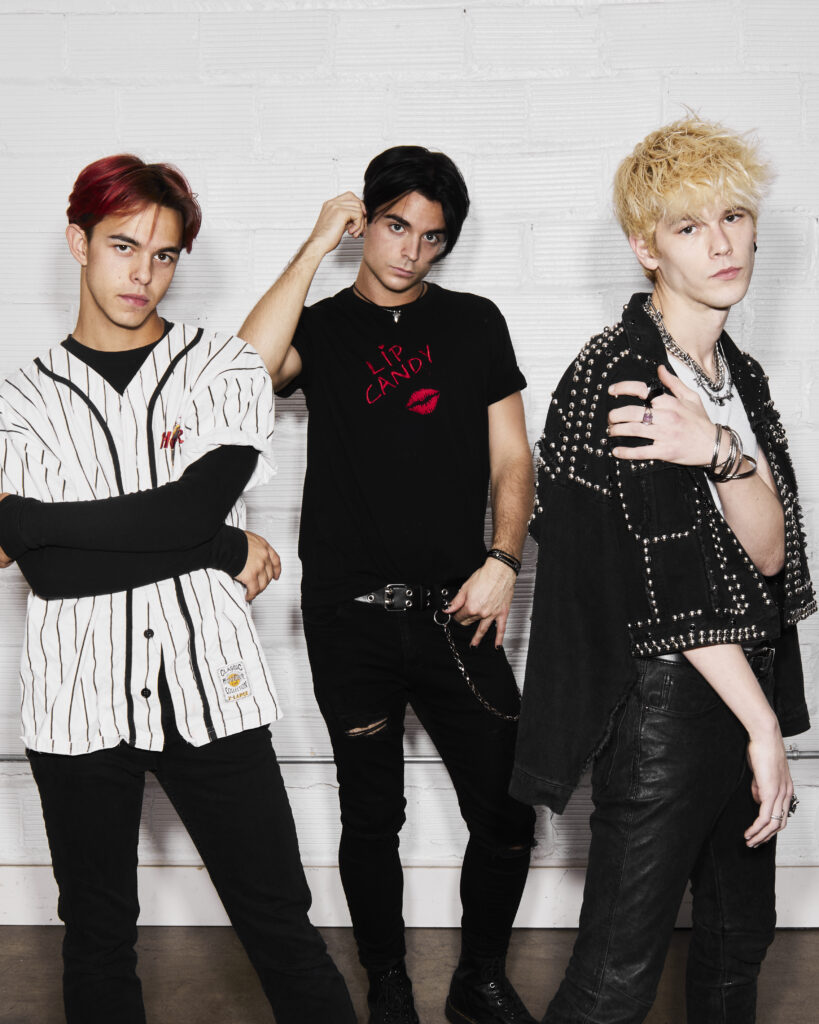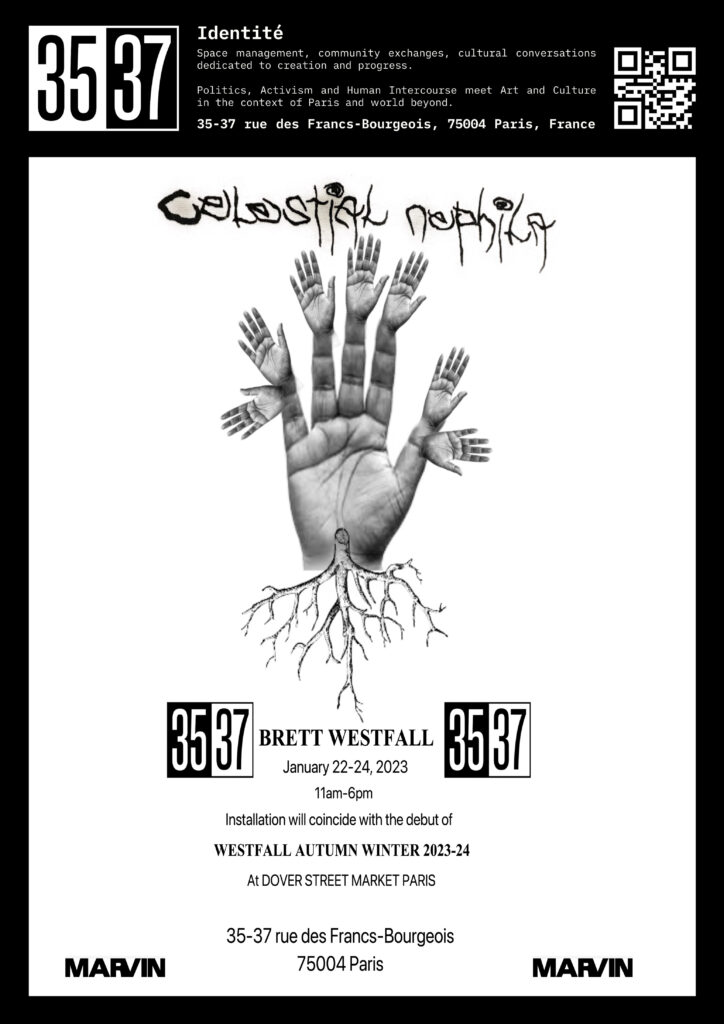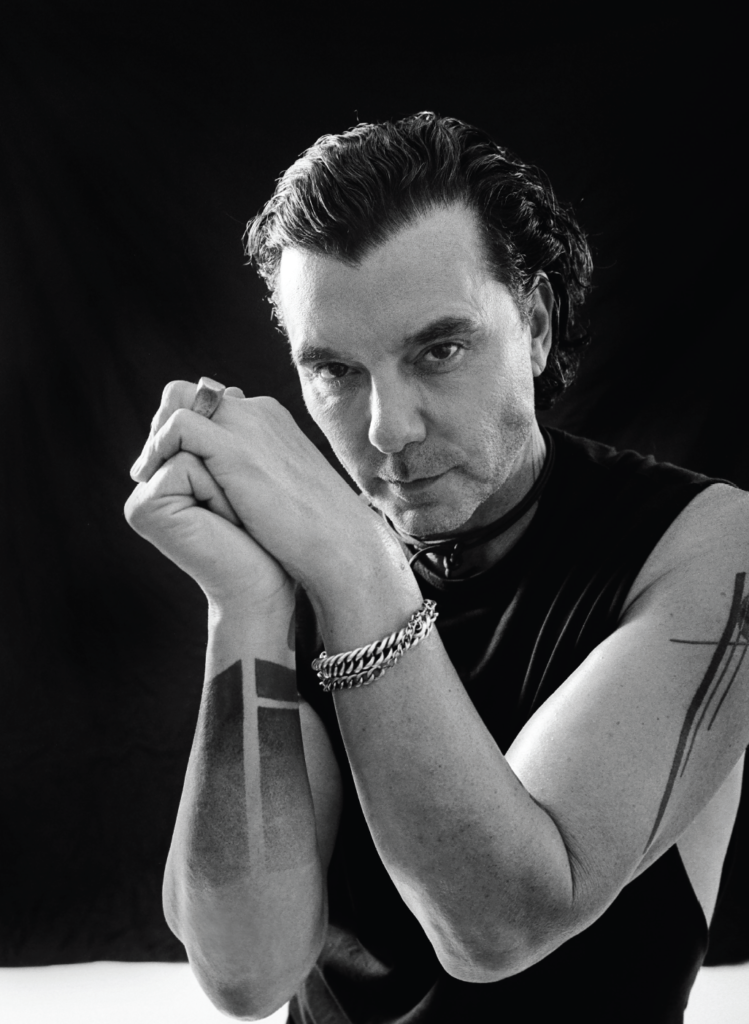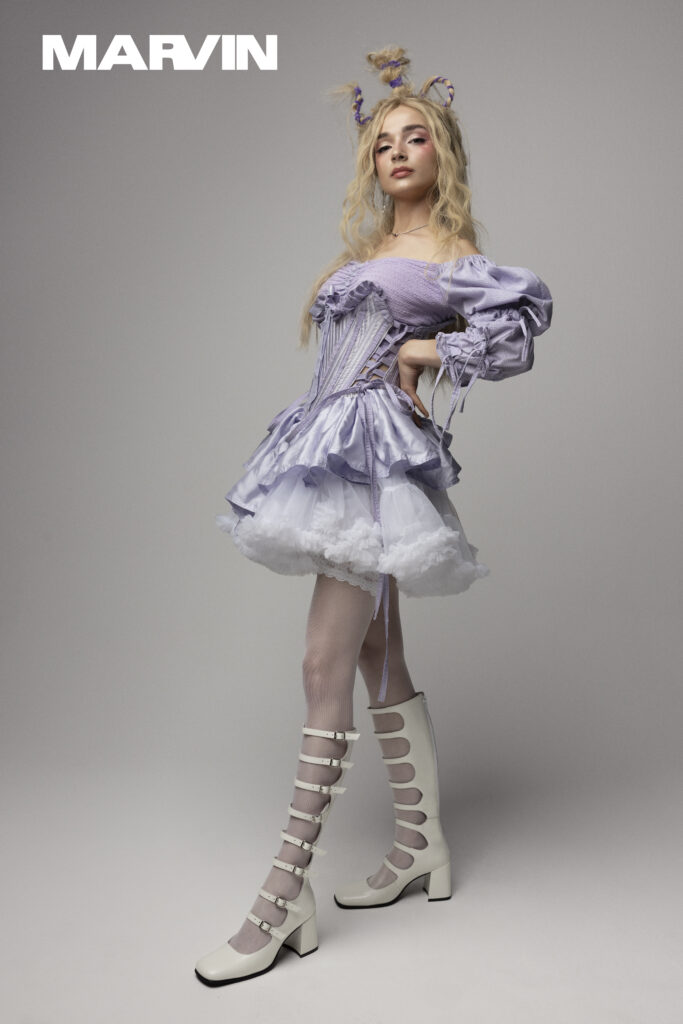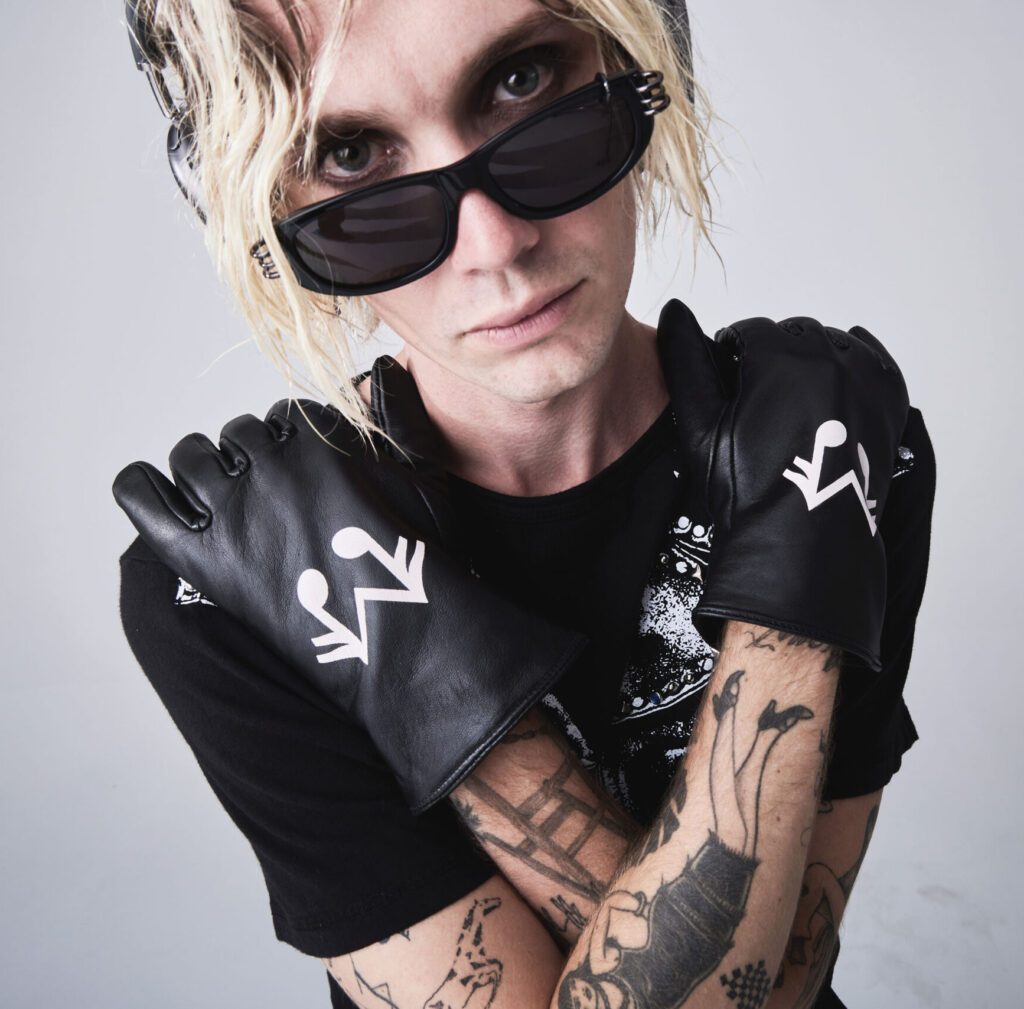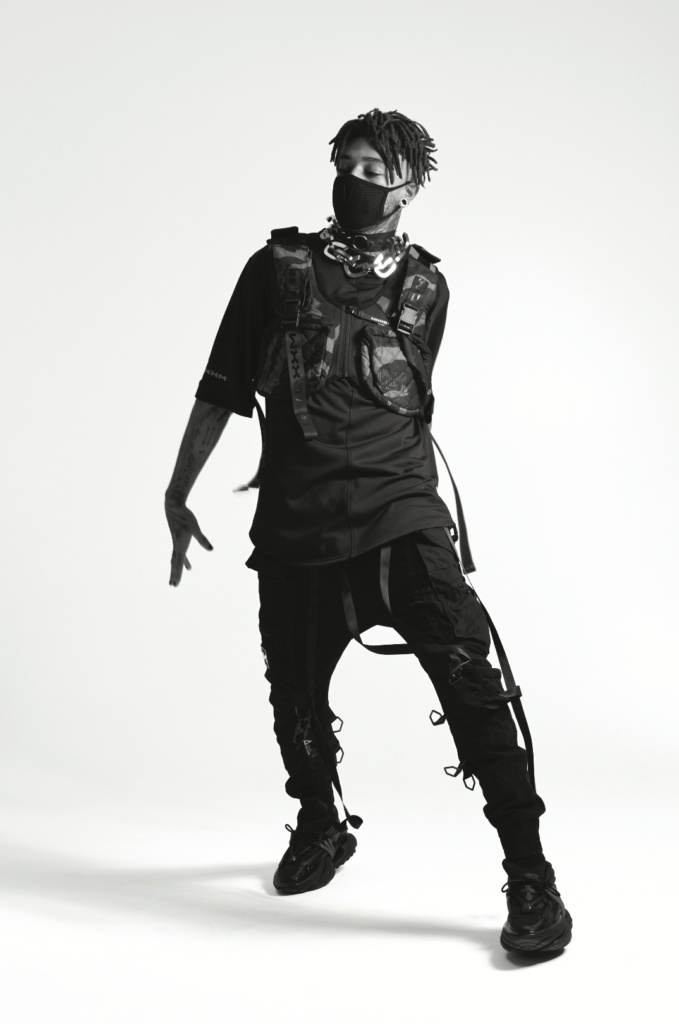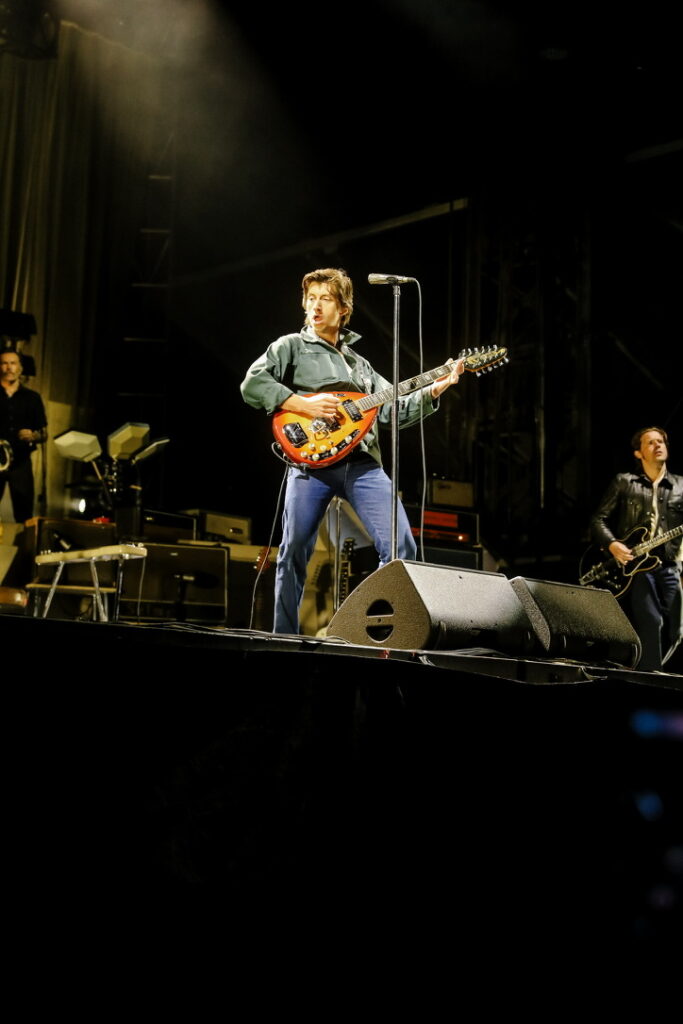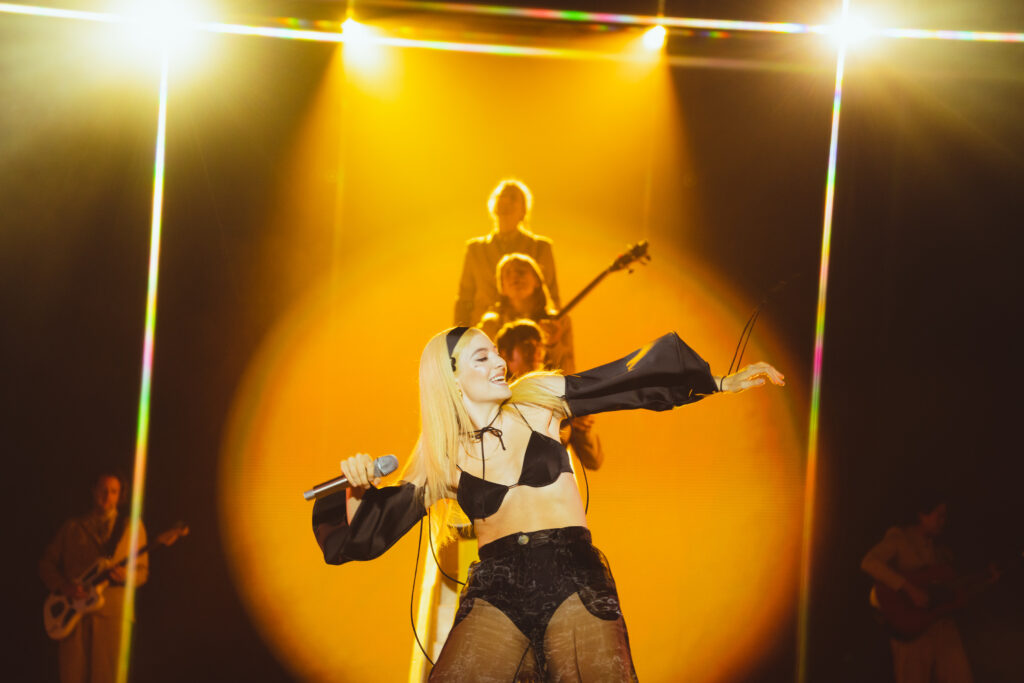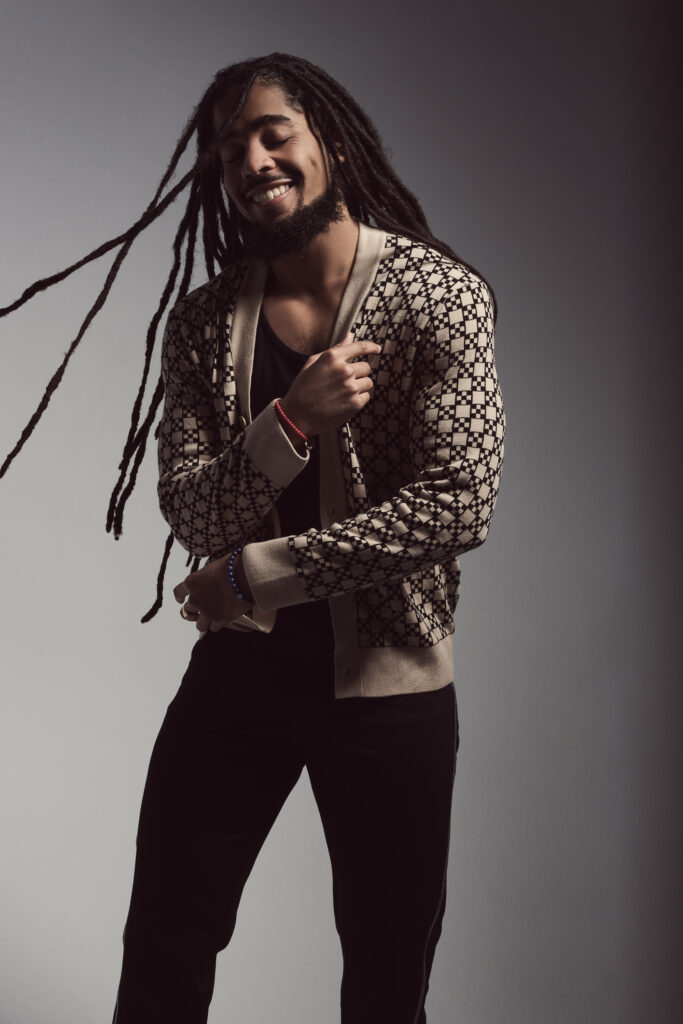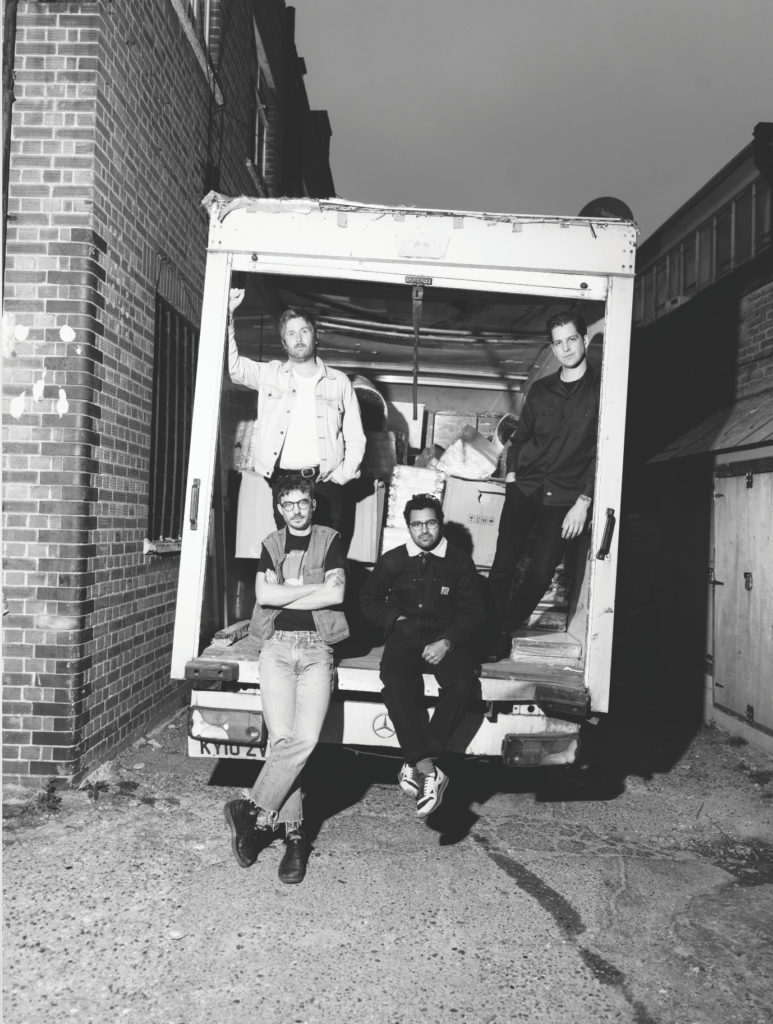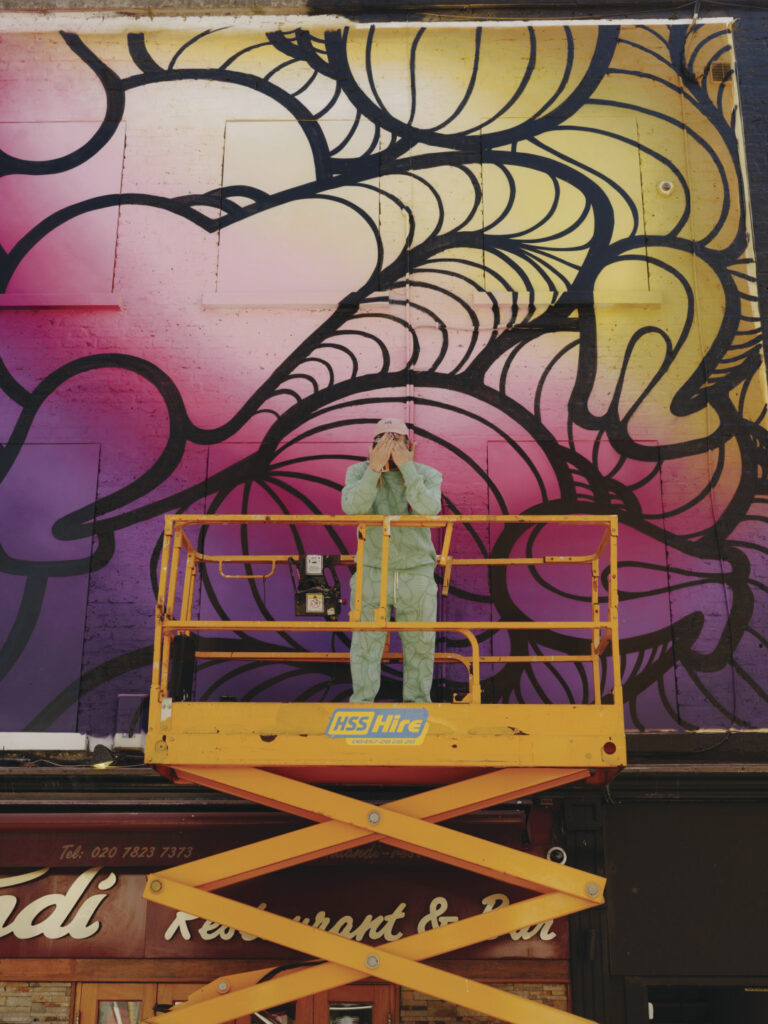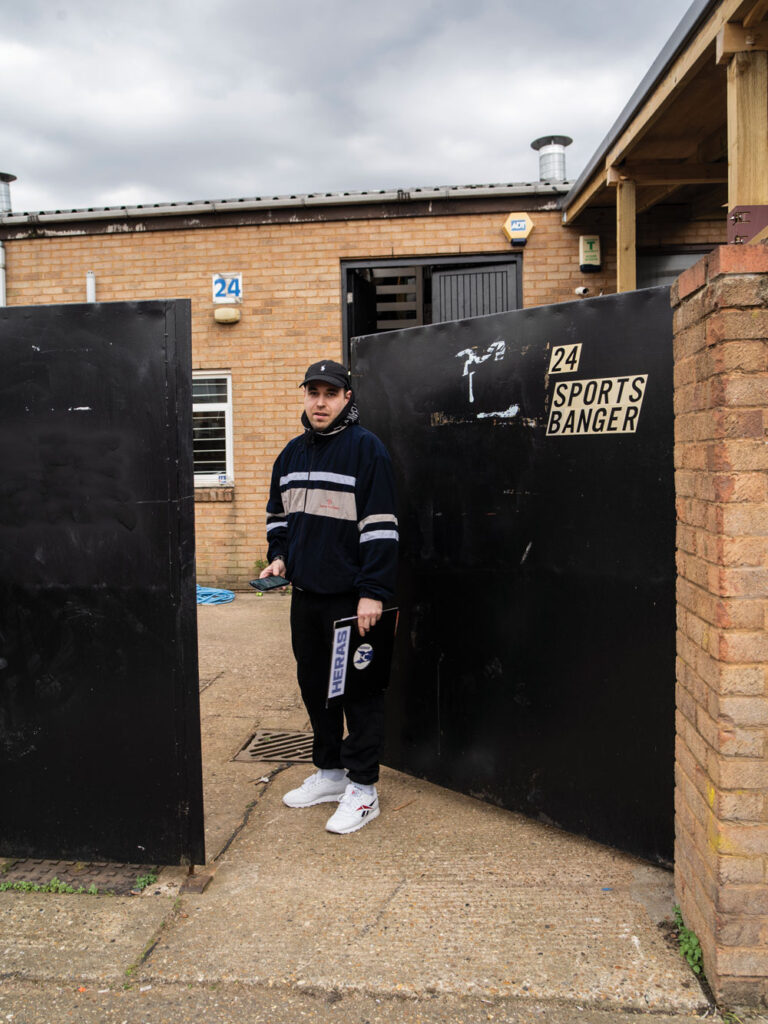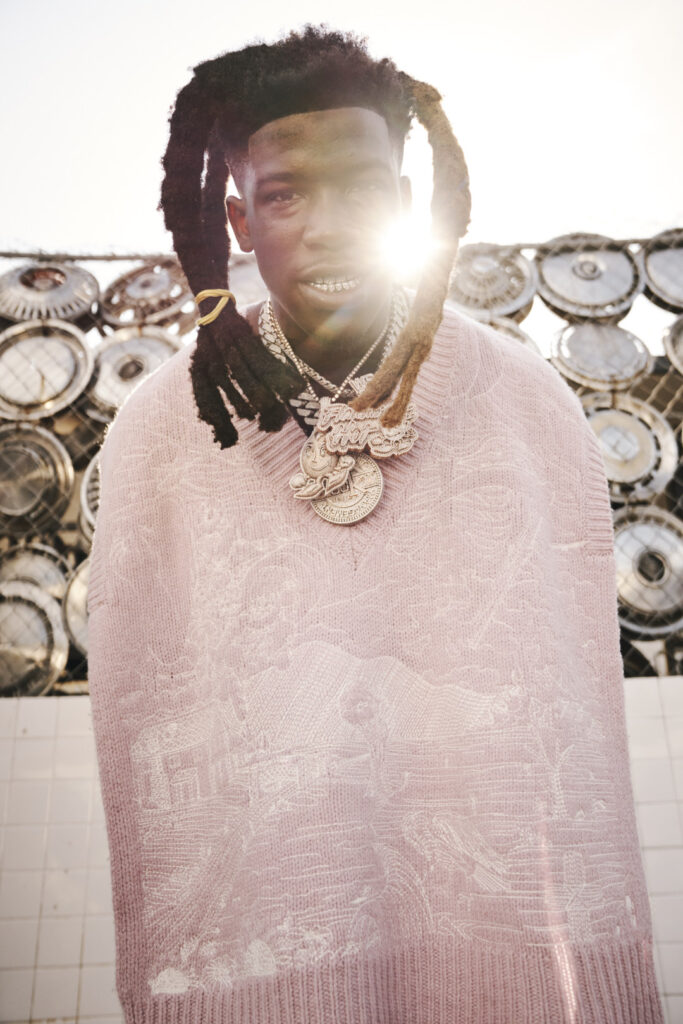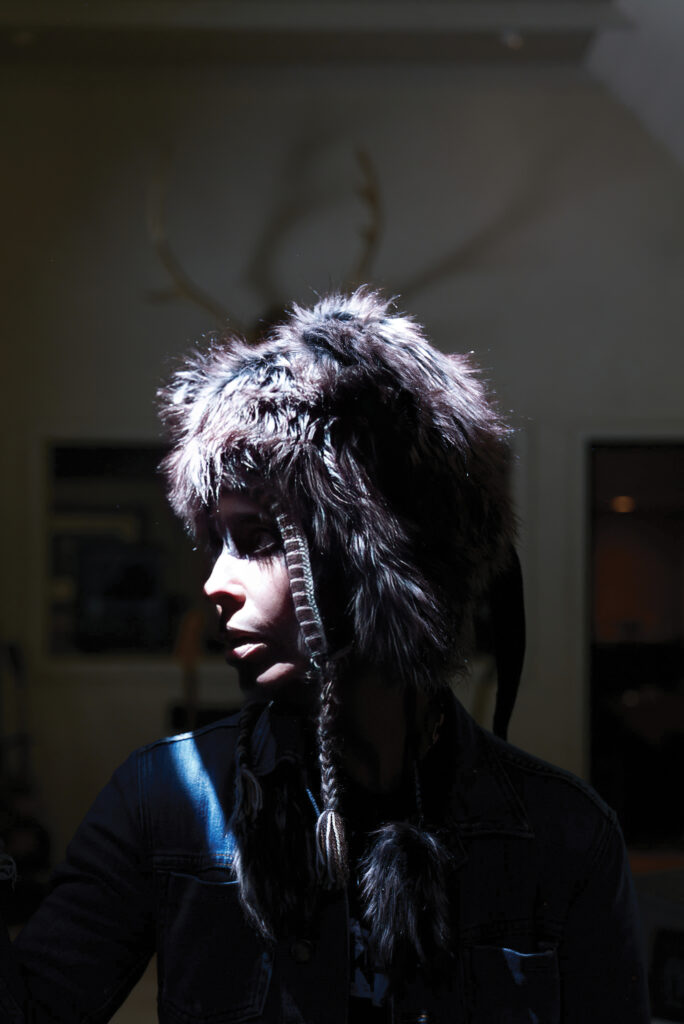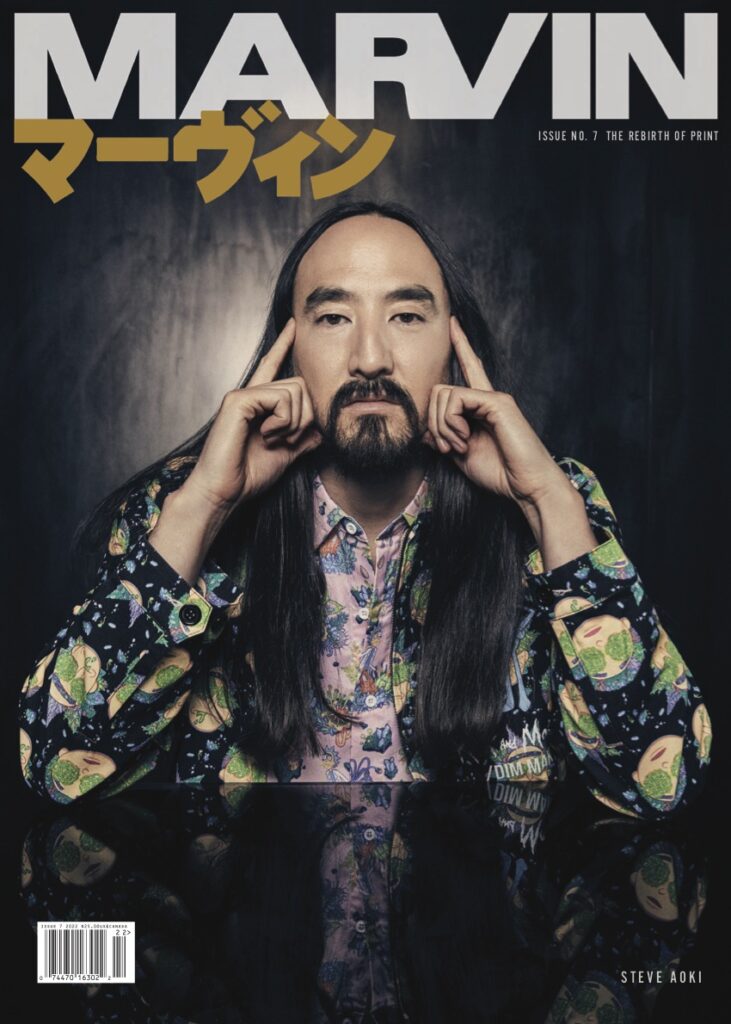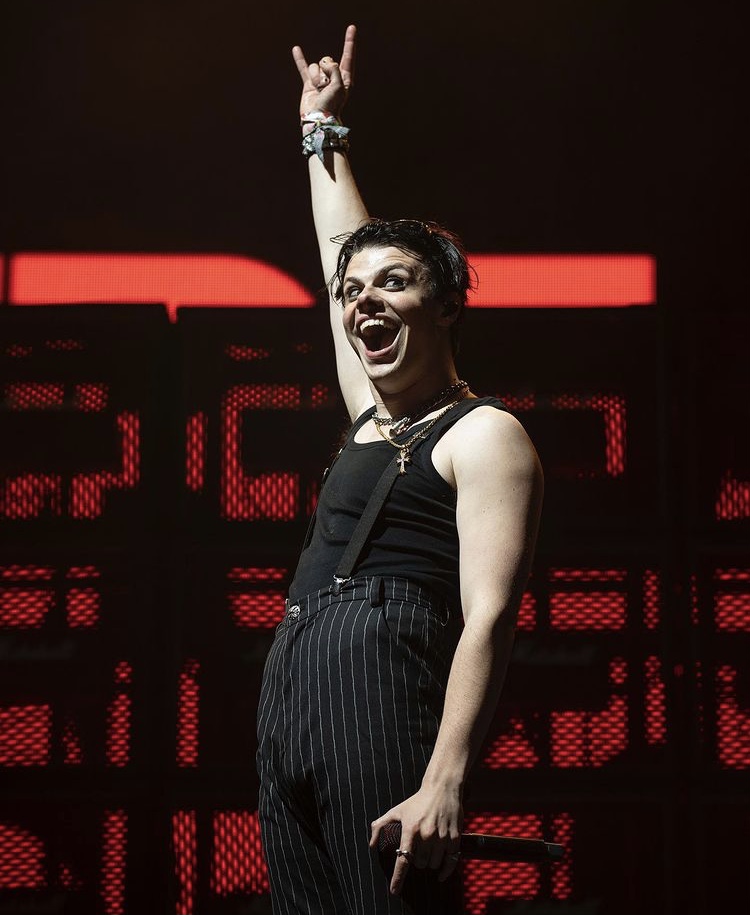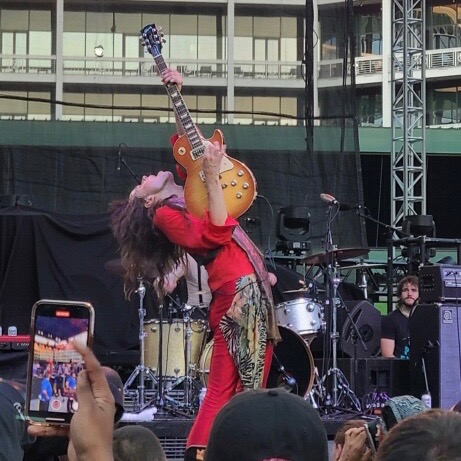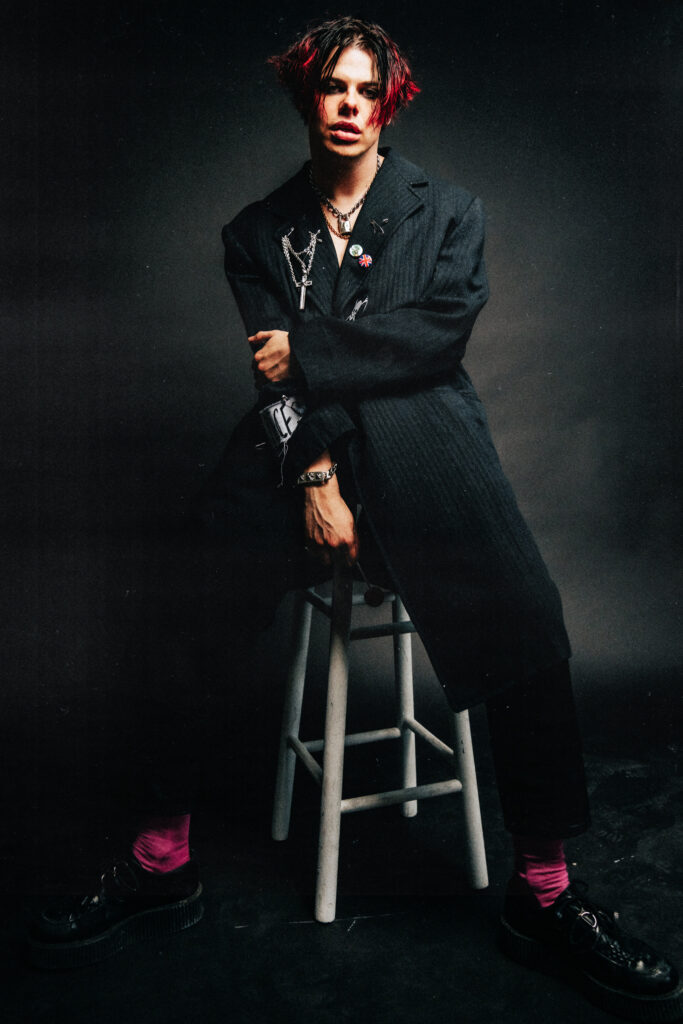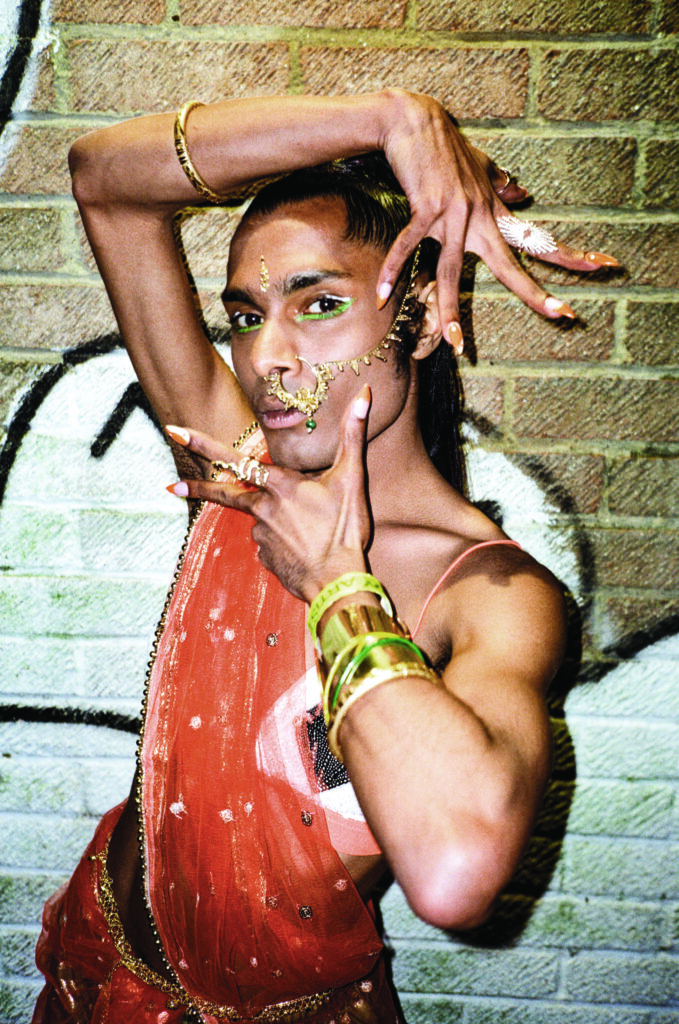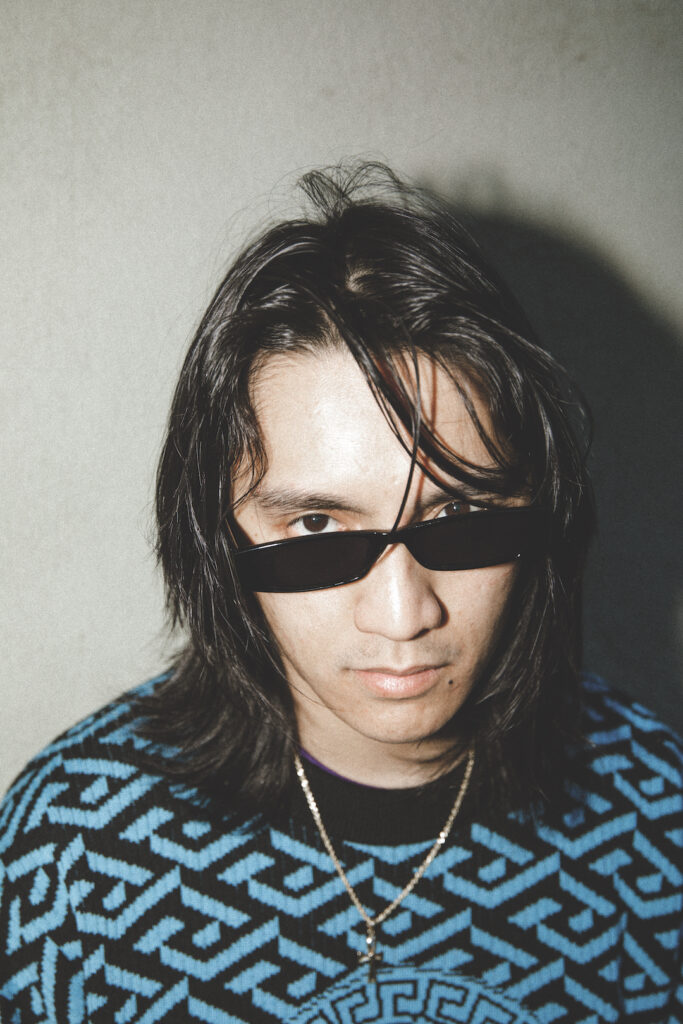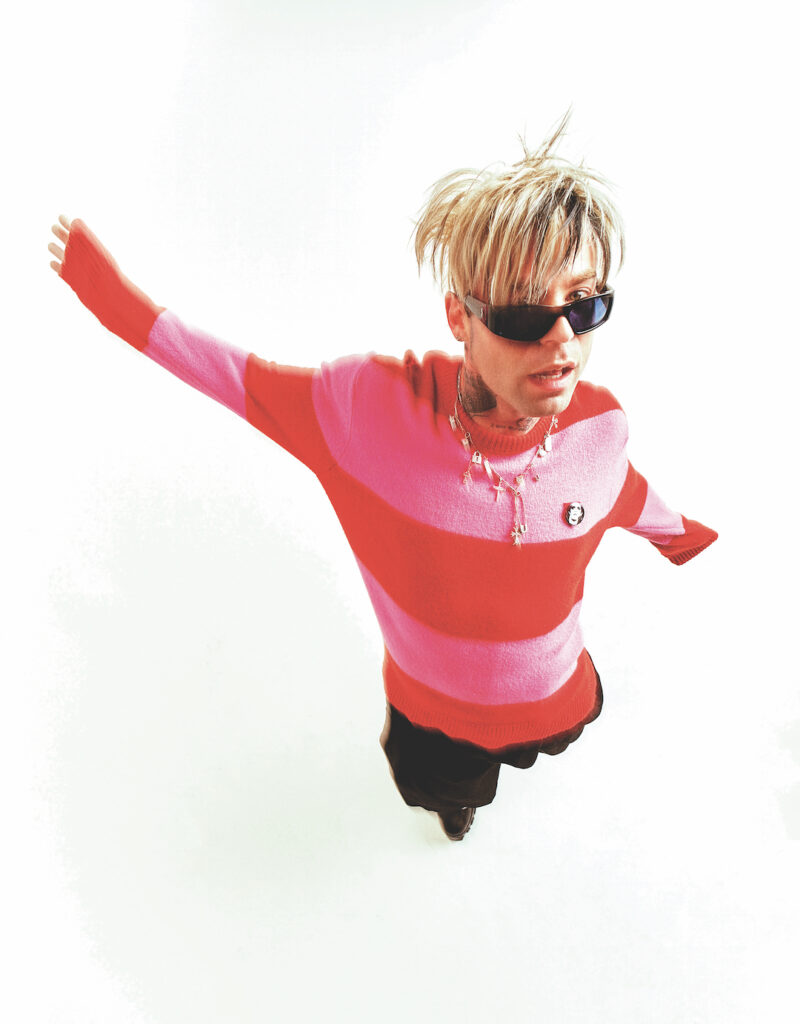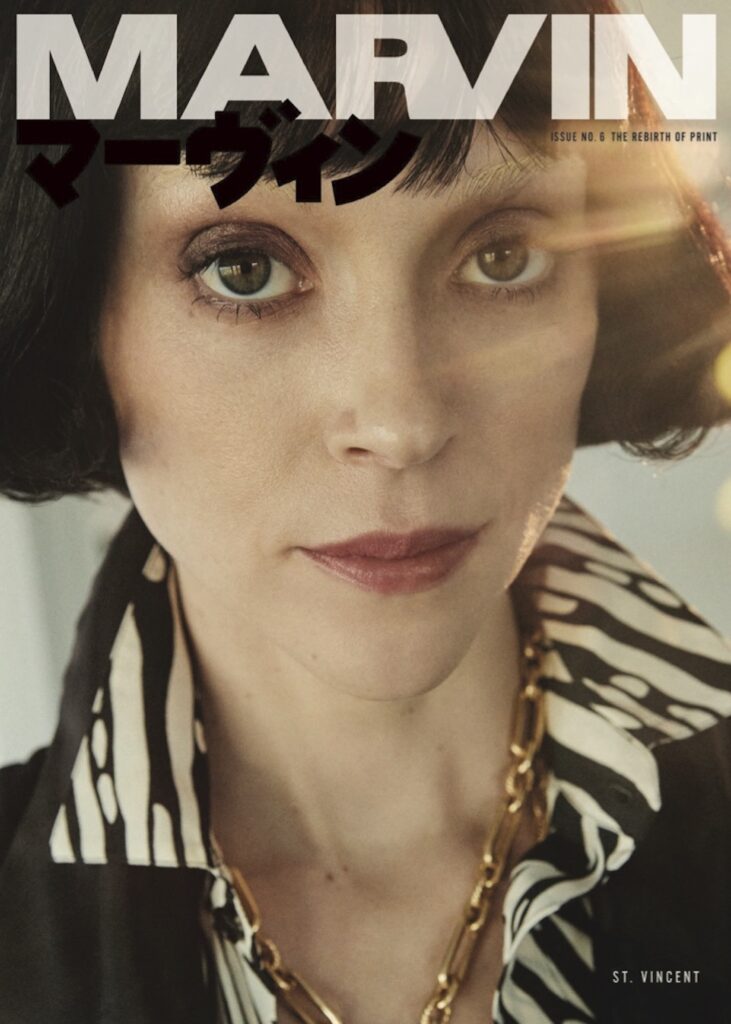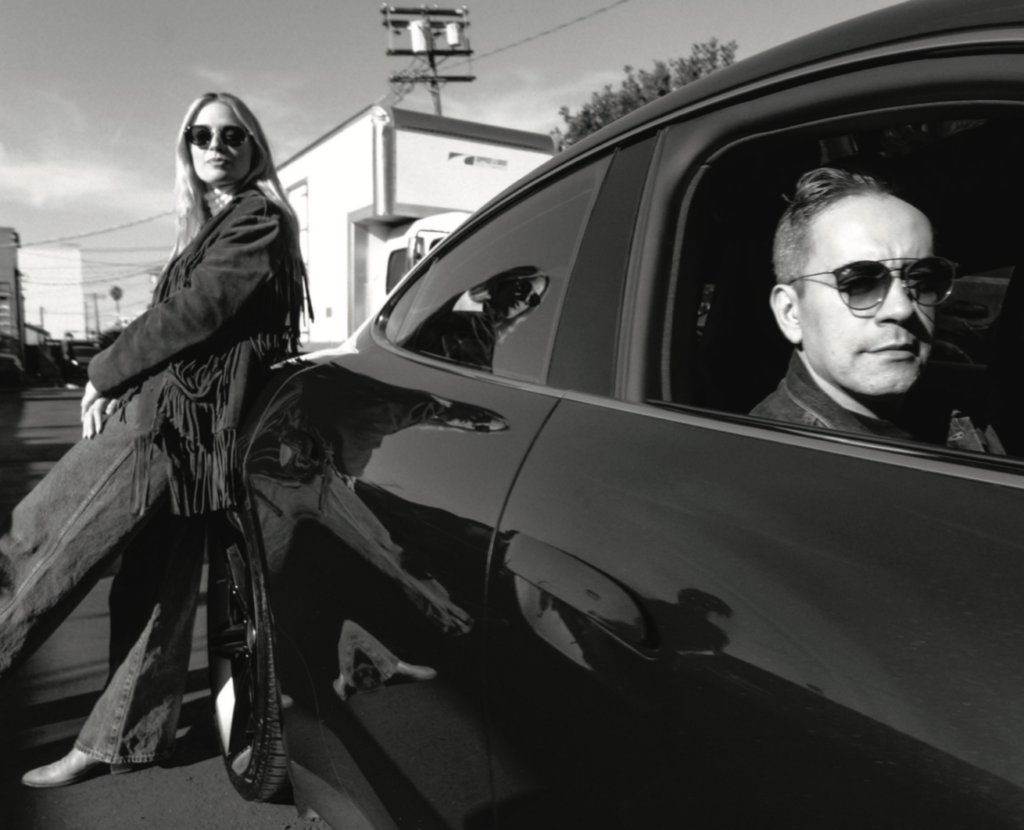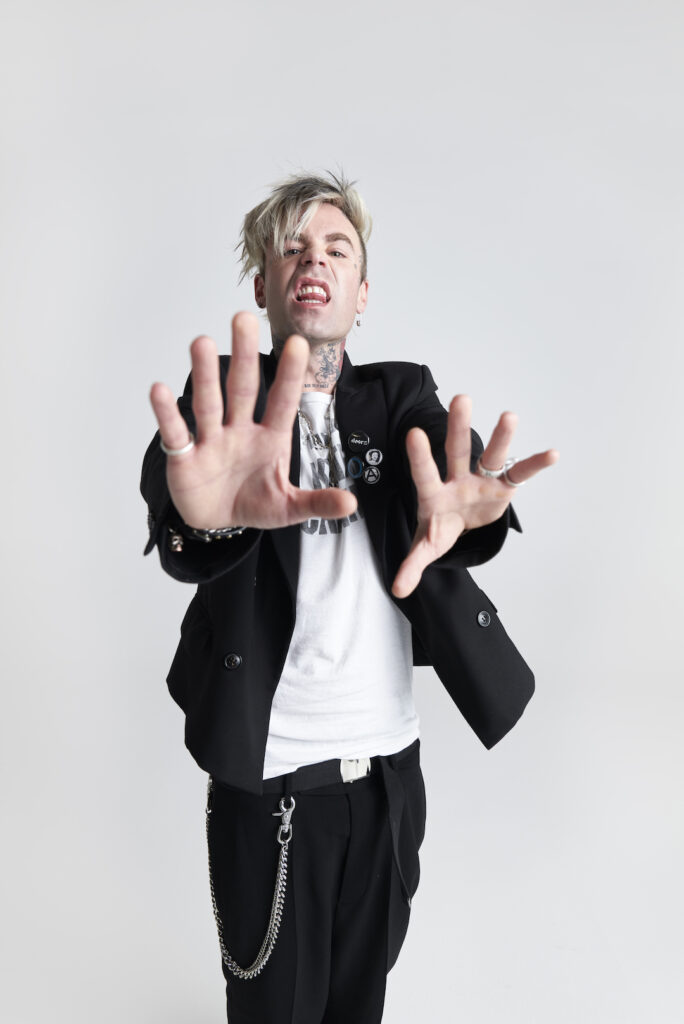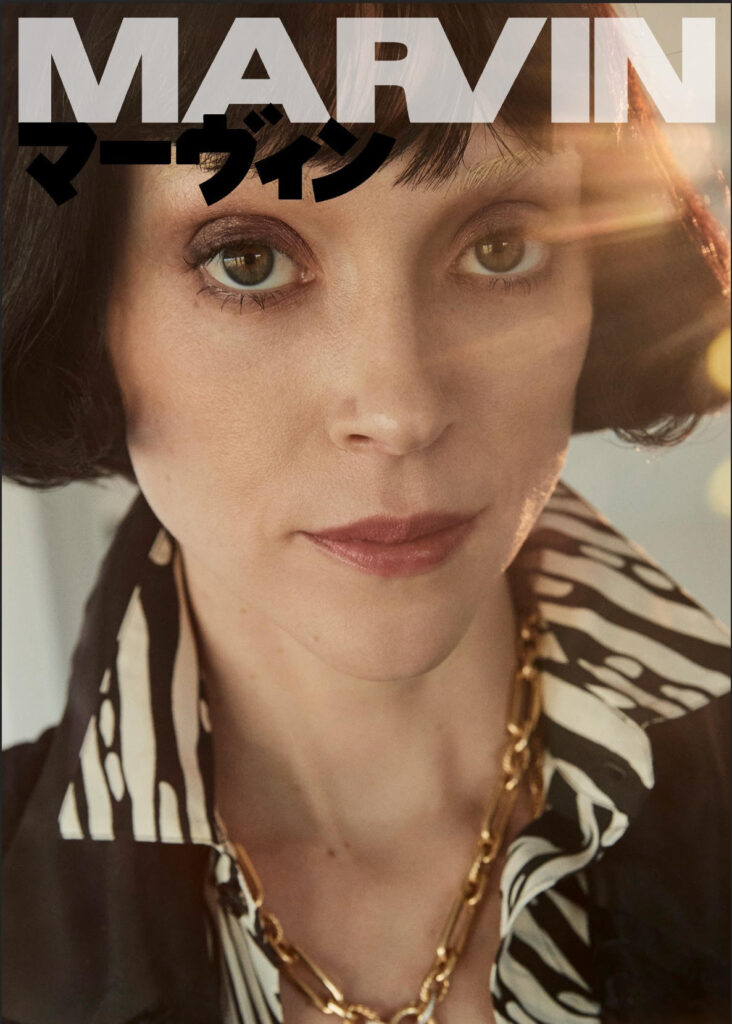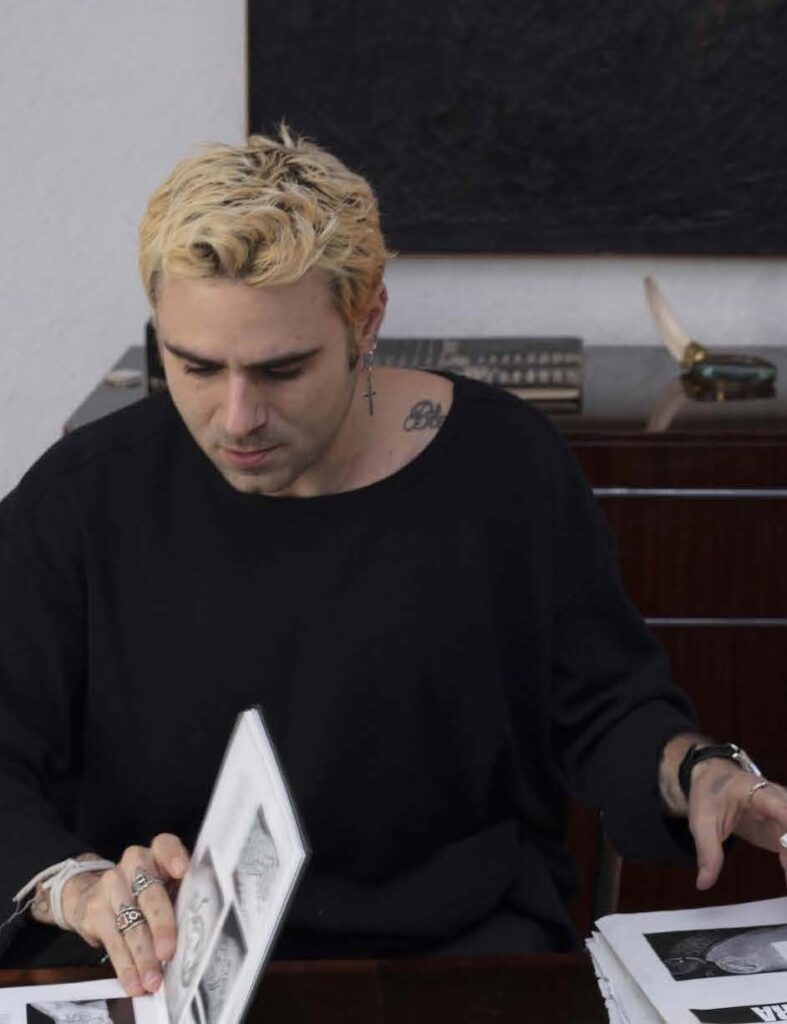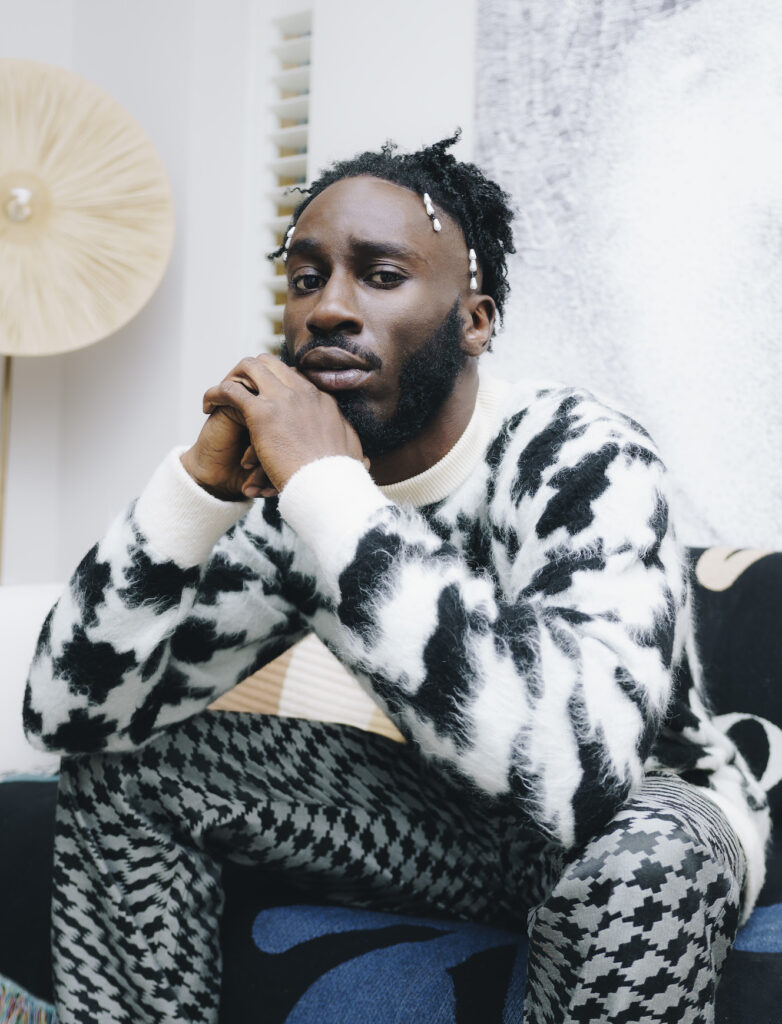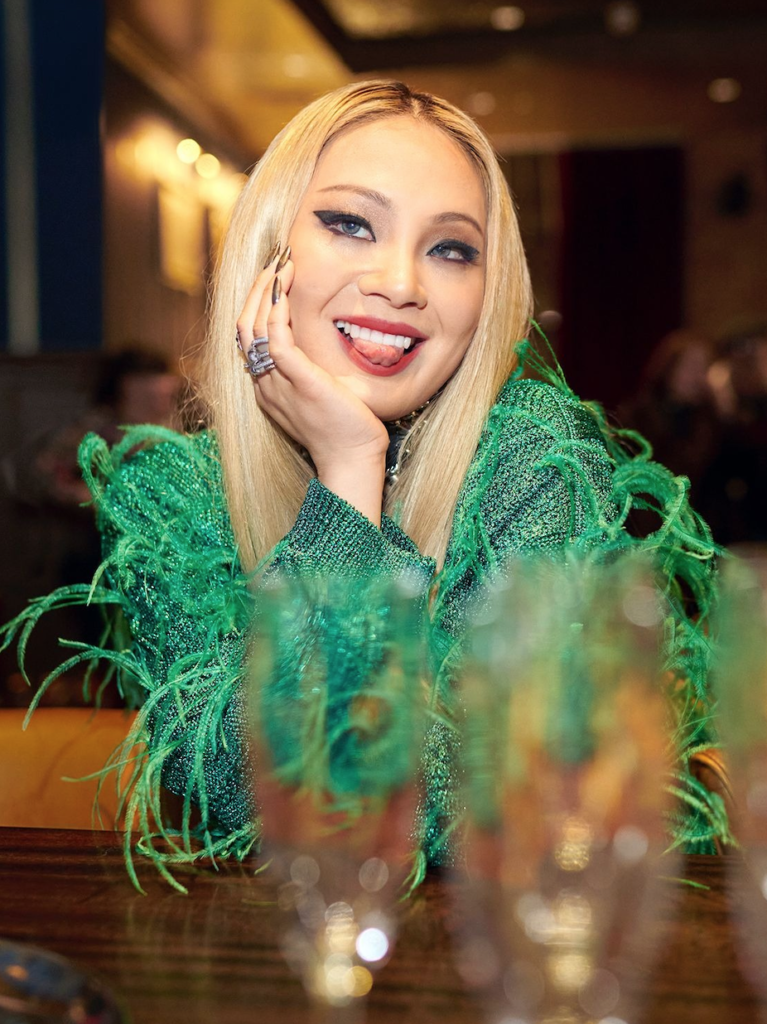A Different Kind of Chaos: Q&A with Faris Badwan and Rhys Webb of The Horrors
PHOTOGRAPHY by TOM OLDHAM
Words by Mat Osman
Photography by Tom Oldham
It’s the hottest day of the year in London and rack upon rack of black clothes, leather boots and studded collars are being wheeled into a sweatbox of Hackney Studios. I’m here talking to The Horrors just as London is waking up from lockdown. They’ve since released some of the most brutal, punishing music of their 15-year career.
The Lout EP with its industrial rhythms, blackened techno and S&M lyrics is as The Horrors have always been: gloriously out of step with the current scene. In an era where it’s become the new orthodoxy that music should be healing and positive, this is the polar opposite: a brutal, punishing racket. I asked band members Faris Badwan and Rhys Webb whether they’d planned to make music so against the zeitgeist.
Faris: Not really. We’ve learnt that we can’t do anything deliberately. We can’t plan at all. It was just the result of working remotely and feeling the frustration that other people do. Music like this feels like a release. I’ve never felt more free than I do now.
Rhys: We released Lout on the very first day that people were allowed to meet up again. It was like our howl into the wind and I think that people needed that energy, that ferocious blast. The whole thing was written back and forth as we explored remote working. We recorded guitars in my front room so it’s the most DIY, self-produced thing we’ve done so far. And for me the energy and excitement and the attitude is the closest we’ve felt to our early stuff. It’s been hard with what’s been going on over the last twelve months but our attitude has been, “right, let’s just do it, quickly.”
Faris: Lout is brutal but in a more of an effective way than the first record. We’ve learnt how to keep the rough elements. Sometimes when you’re in a big studio you can lose those human connections. “Machine” on the last record [ V ] hinted towards these kinds of sounds so it’s not completely new to us.
If you’d asked me what kind of music I was looking for at the moment it would have been something soothing and soulful. And then I heard Lout and I was blown away. I didn’t think I was looking for something this aggressive at the moment.
Faris: That’s the ideal, really. You release something that people don’t realize is what they want until they hear it. It’s just a true expression of what we’re doing and what we want to communicate and whenever you do that, it just works. It’s the music we’re excited to be doing.
What was the musical template behind the record? I hear bits of Ministry and Nine Inch Nails in there, some metal, some techno even some of the glitchy pop of artists like the late musician, SOPHIE.
Faris: We never have a template. It’s just a different kind of chaos each time. Usually we just make a record. Then it’s only in the reviews that we get presented with a list of references. I’ve actually often discovered great music that way. Sophie was one of my oldest friends though and I learnt a lot from her. I love that world and I love that pop went that way. But we’ve also been quite into black metal recently and that can be really uplifting. The nonstop punishment of it puts you in a good place— [laughter]. If you make something that has that urgency and truth to it then people will respond. I don’t really think about how it’s going to be taken on by other people. That’s not up to me.
Rhys: When we did the first record we had no interest in trying to sound like the music we love because within the group there’s people into all kinds of things. Tom’s into hip hop. Joe’s into hard techno. Faris has done film music. But we’ve never wanted to sound like someone else. There’s no desire to recreate something.
I have to admit that when I first heard you play I loved the band but I couldn’t imagine it having a long career. It felt like one of those Sex Pistols things: piss everyone off and then explode in a mess of acrimony. But here you are 15 years later making astounding music while most of your contemporaries have split up.
Faris: I think a lot of people expected us to not last long. We started out without songs and we did our first gig after two weeks. When we got signed I think we had three original songs. We were kids but there’s value in that. It’s easy to dismiss what you did when you were younger but that spark—you can’t invent that. We learnt how to be a band by find- ing that crowd reaction. Even when we practice, we play like it’s a live gig. Everyone dancing and Rhys in the corner destroying his keyboard in a half-hour rehearsal.
Rhys: Our energy live has never changed even if the music has explored different areas. Our intensity has been really important to us. Even the more delicate beautiful moments, when we play them live everyone is still thrashing about and dancing.
There’s a whole artistic world around The Horrors. You all have side projects. You all share playlists and mixes online. You run club nights and big up other bands. You’re generous with the music you like.
Faris: That’s such a huge thing for us, that sharing. Because that’s how we all met; through that enthusiasm to share and bring people in our world. Right since the early days Rhys has been running The Cave Club and it’s a bit like a scene of our own.
Rhys: I don’t think there’s been another band in our generation that inspired people to want to dress up like the guys in the band. We had queues around the block in polka-dot scarves and winklepickers [boots] and tight jeans. Lots of hair standing on end. Boys and girls in makeup.
And when we evolved, a lot of the crowd evolved along with us. And as the aesthetic and sounds changed they came with us. We’ve been lucky that a lot of people who started listening to us at 14/15 are still on that journey with us.
Which seems amazing because you’ve changed so much as a band. Every record sounds very different from the last. Does that come about because all five of you are so involved?
Faris: Maybe. We’ve never worried about “what do we do next” — it doesn’t work like that. It’s a mistake to make music for the listener because it never does what it’s supposed to. Even if we tried to have a plan, we’d end up somewhere else anyway because everyone separately brings in things they’re excited by and it ends up coming together in ways that you don’t expect. Alchemy is the best way to describe it.
It doesn’t matter which direction you go as long as you keep some element of you in there. The kind of music that never excites me is the kind where you don’t know who you’re hearing. You don’t know anything about them or their world so it doesn’t draw you in. You just need to tap into the immediate, spontaneous thing and then you can craft later. It’s way more exciting when the initial spark in spontaneous.
Rhys: Our obsessions are everchanging but because we spend so much time together—over 15 years—we’ve moved and grown together. We’re always talking about the music we love and going to gigs together so it becomes this ongoing, meandering journey. On the last record, I got stifled by ideas of “what makes a good song?… where should the chorus go?” Those kinds of questions. So when we sat down to create Lout I get to the end of the day and suddenly you hear what you’ve done and it’s like: “Wow, this is amazing, where did that come from?”
Something like “Whiplash” [on Lout] is lyrically pretty brutal and grim.
Faris: Thank you!
New tracks like “Whiplash” and older ones like “Machine”– both show your obsession with the differences between the animal world and the mechanical world …
Faris: … and how they meet. It’s not just lockdown. Even before, I thought that for a while. It’s been an interesting time culturally. You’re seeing people react in a way that they haven’t before.
“Whiplash” is that physical world taken to the extreme. Touching until you bleed …
Faris: … yeah but something becomes mechanical about it too. Press this button and then you react. It’s visceral. I like seeing how these things interact.
Is that because you’re a singer trapped in the machinery of this repetitive music? There are moments in the EPs where you sound ghostly.
Faris: Well, singing live always brings that primal side out. Almost to the point that I’m a different person. It’s just the way I react to adrenaline. I’m always pushing myself live and the shows have always been intense. And sometimes I almost go too far because I want to provoke and see how people react. I think I interact with things on a more intuitive level. I don’t have much control about how I behave in the moment. On stage you’re reacting more than acting. You’re in a situation with a different set of conditions and it brings out another side of you.
Are you in control in those moments?
Faris: No. It takes you over.
Rhys: On stage I can’t stand still. I’m always dancing and that could be perceived as a “performance” but actually it’s just me. Something’s happening up there but I’m not in control of it.
What’s the first thing you want to do after lockdown?
Faris: I want to see Matthew Barney’s new show [Redoubt] at The Hayward [Gallery]. When I was 16, my old art teacher took us—my whole art class, including Sophie—to see The Cremaster Cycle [by Barney] at the Guggenheim in New York. It was one of the most amazing things I’d ever seen. The costumes and the bizarre imagery—y’know a Vaseline staircase—that somehow made total sense. It was so inspirational to me seeing it with no frame of reference and I’ve gone back to it so many times.
Rhys: I just really want to be in a very dark, pounding, intense environment with other people getting completely smashed. The music in Lout was kind of a surprise to all of us but around that time I was really appreciating darker, heavier experiences. Clubs like Chaos and then on to parties like Hotbox. Heavy electronic nights but with a really dark edge. Volume, intensity and extreme people. I love that feeling of being pounded by bass and kick drum while people dance in their own space looking at the floor. Y’know, leaving at 6am and then on to a party until 10pm on Sunday night. It’s the same experience I get listening to Mayhem or Darkthrone or even
Throbbing Gristle. Maybe it is perverse and challenging but I just love that brutal experience of not wanting to give a fuck about anything else but making a racket. It’s cathartic and immersive.
Faris: It’s primal isn’t it? When you talk about what you love about clubs it’s that thing of deconstructing yourself and making yourself go blank so that you can enjoy things on a primal level. We’re at our best when we’re intuitive. It’s a cleansing noise that breaks things down to start again.
@thehorrors






